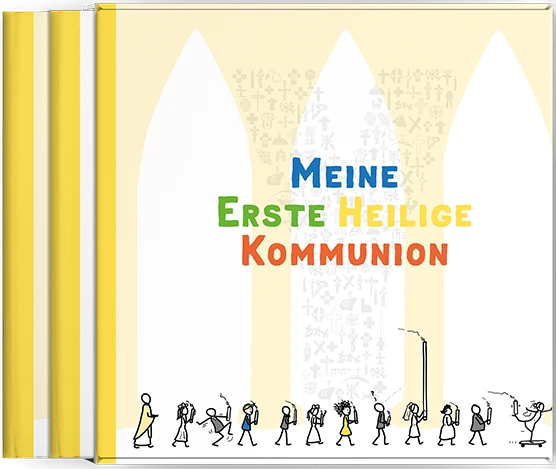

Credopedia
What are the 7 gifts of the Holy Spirit?
What are the 7 gifts of the Holy Spirit and how are they described in the Bible. All explanations can be found in this article.
Definition
The Seven Gifts of the Holy Spirit
The Holy Spirit, promised to the disciples by Jesus, is present in the New Testament with three words: dynamis (= omnipotence of God), energeia (= effective power), and pneuma (= living breath). In the Holy Spirit, we are given the fullness of grace. The biblical speech about the “Seven Gifts of the Holy Spirit” specifies what gifts can and do become visible and possible in individual believers through the gift of the Holy Spirit. One speaks of charisma or charisms (ancient Greek = gift given out of goodness).
What does the Holy Bible say?
In the New Testament there are lists of the “gifts of the Holy Spirit” in various places, some of which overlap — for example Rom 12,6-8; 1 Cor 12,8-10; 1 Cor 12,28-31; Eph 4,7.11f.; 1 Pe 4,10-11. Traditionally, there is talk of “seven” gifts of the Holy Spirit in the Church. YOUCAT 310: “The seven gifts of the Holy Spirit are wisdom, understanding, counsel, fortitude, knowledge, piety, and fear of the Lord. With these the Holy Spirit “endows” Christians, in other words, he grants them particular powers that go beyond their natural aptitudes and gives them the opportunity to become God’s special instruments in this world.”
A short YOUCAT-Catechesis
The secret plan of the Church
There is a beautiful old Church in Neuburg an der Donau where people only have to look up to the ceiling to discover the “Seven Gifts of the Holy Spirit.” In a short film, Annemarie Strahl explains what this strange painting is all about. Her explanation is beautiful and precise. It depicts the Holy Spirit thusly: “as he builds the Church He is there, where in a vaulted ceiling stands the keystone, without which a vault would collapse. Our Church exists only because the Holy Spirit is there and pours out his gifts… The Seven Gifts flow in seven different directions, and I think that everyone has received one or more gifts — I don’t think that anyone has all of them.” This is exactly what YOUCAT 119 asks for: “What does the Holy Spirit do in the Church?” Answer: “The Holy Spirit builds up the Church and impels her. He reminds her of her mission. He calls people into her service and sends them the necessary gifts. He leads us ever deeper into communion with the Triune God.”
Many architects spoil the Church
In Germany there is a saying: Many cooks spoil the broth. One of them adds a little salt. Another one says: “Now another spoonful of honey!” The third says: “Porridge without garlic? No way!” What is the likelihood that the porridge becomes inedible? Christianity becomes just as inedible when self-proclaimed architects think the Church is what we humans make of it. Here is another clever book! There yet another new committee! And here a fabulous memorandum! They tinker with the Church without restraint, trying to smooth its edges and make its appearance more acceptable to contemporaries. By listening to God, people can serve the Church very well. But, in the end, the Church has only one master builder. He is invisible, and can only be detected with the finest of senses, but is highly active. “The Holy Spirit is the one who maintains the Church as a whole in the truth and leads her ever deeper into the knowledge of God. It is the Holy Spirit who works in the sacraments and brings Sacred Scripture to life for us.” (YOUCAT 119) And that is what matters. As an association with high ideals, as a human community, as a group, as a party, generally as a sociological entity, the Church is of no interest.
That it is indeed the Holy Spirit who works in the Church is evident from the mere fact that it still exists after 2000 years. In its long history, everything has been done with the Church: it has been forbidden or used, lifted to heaven or cursed, bribed or persecuted, imprisoned or excluded — and every few years it has been declared dead. Napoleon once threatened the Vatican negotiator Consalvi: “Do you realise, Eminence, that I can destroy your Church at any time?” Consalvi replied: “Do you realise, Eminence, that not even we priests have managed to do this in eighteen centuries?” And something else speaks for the mysterious spiritual architect: “The mere fact of her two-thousand-year existence and the many saints of all eras and cultures are the visible proof of his presence.” (YOUCAT 119) When the church sank into money, power and fame 800 years ago, it was not popes and prelates who saved it from ruin. A small man named Francis rebuilt it in the Holy Spirit. And when Rome was judged by the Reformation 500 years ago and plundered by mercenary armies, it was again not popes and prelates who pulled her out of the mud, but a holy fool of God, Philip Neri, and a holy soldier of God: Ignatius of Loyola.
The building blocks for a spiritually moved Church
The Church first needs the gift of wisdom — or (to use another term) the “spirit of discernment.” In 1 John 4,1 it says: “Beloved, do not trust every spirit but test the spirits to see whether they belong to God, because many false prophets have gone out into the world.” This is why wise Christians often say: Let me pray and sleep on it for a night, then I can pass judgment.
The Church, then, needs the gift of insight. Insight means: Do not merely remain on the surface! Look into the deep! Recognize what God wants to tell or show you. The “listening heart” (1 Kings 3,9) that the wise King Solomon asked for can be found again in the two disciples of Emmaus, who leave with dark thoughts until a mysterious third person joins them. The eyes of the desperate only open when the bread is broken. Without insight we would never know, “’What eye has not seen, and ear has not heard, and what has not entered the human heart, hat God has prepared for those who love him,’ this God has revealed to us through the Spirit.“ (1 Cor 2,9-10)
The Church needs the gift of the Council. For often we are at a loss — and our perplexity causes us to “short-circuit.” Then, we do it — not God. Being a Christian means living with trust and patience, waiting for the hand of God. When the hour has come, it will become clear to us what is right. We can think of the word that Jesus gave his disciples for the hour when they would be brought to judgment: “Do not worry about how you are to speak or what you are to say. You will be given at that moment what you are to say. For it will not be you who speak but the Spirit of your Father speaking through you.” (Mt 10,19-20)
The Church needs the gift of strength. It can also be said that it needs bravery and prophetic people. “Someone who practices fortitude”, says the YOUCAT 303, “perseveres in his commitment to the good, once he has recognized it, even if in the extreme case he must sacrifice even his own life for it.” The true servants of God follow 2 Tim 4,2: “Proclaim the word; be persistent whether it is convenient or inconvenient.” A courageous resistance fighter against Hitler, Robert Prinz von Arenberg, said: “They cannot do more than kill me. And even if they do, it will not really kill me.”
The Church also needs the gift of knowledge. This does not simply refer to human reason, but to that “knowledge” which is evident in Jesus in the story of the woman at Jacob’s well (Jn 4). Although Jesus does not know the woman, he is able to grasp her inner needs and shows her the healing way. In the Church we often find this gift of knowledge in wise confessors and people who accompany others spiritually.
The Church also needs the gift of piety. A person is pious when he has made God the centre of his thinking, judging and acting. “Once you have come to know God”, it says in YOUCAT 34, “you must put him in the first place in your life.” Piety is another word for devotion to God. Titus 2,11-12 says of the grace of God: “For the grace of God has appeared, saving all and training us to reject godless ways and worldly desires and to live temperately, justly, and devoutly in this age.”
Finally, the Church needs the gift of the fear of God. For many modern people, this is something questionable. But for the Holy Scriptures, the fear of God is the „the beginning of knowledge, but fools despise wisdom and discipline.” (Prov. 1,7) What is meant here is an attitude that proceeds from the infinite sublimity of God above all human thought and action. The God-fearing man puts the will of God above his personal plans; he does everything to live according to God’s commandments and not to transgress them.

YOUCAT Digital
Discover our digital products, which will help you to grow in faith and become missionaries yourself.







